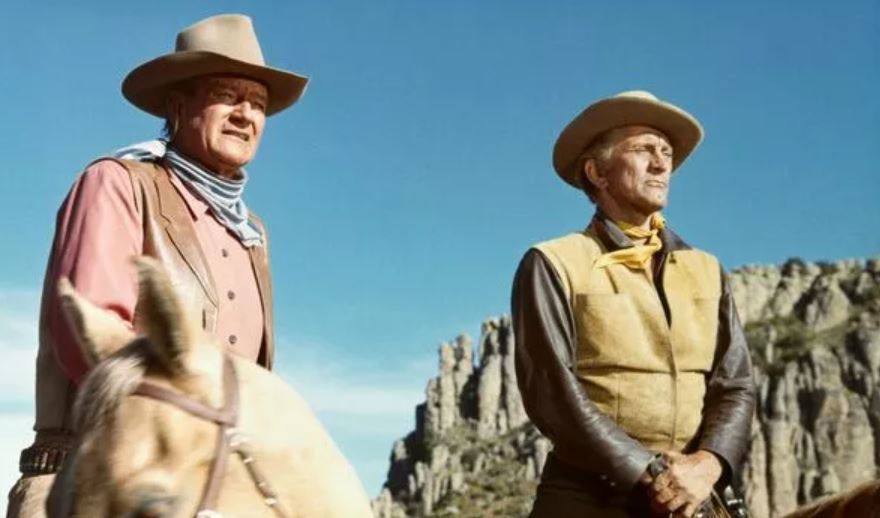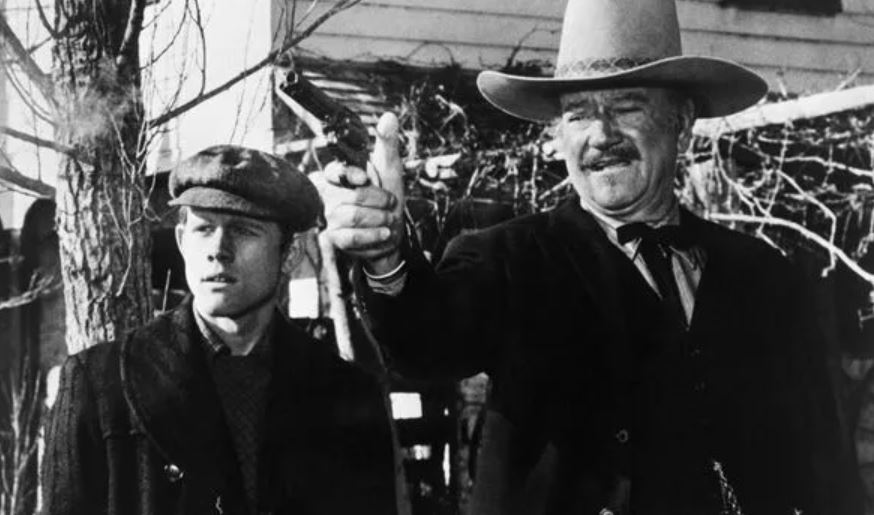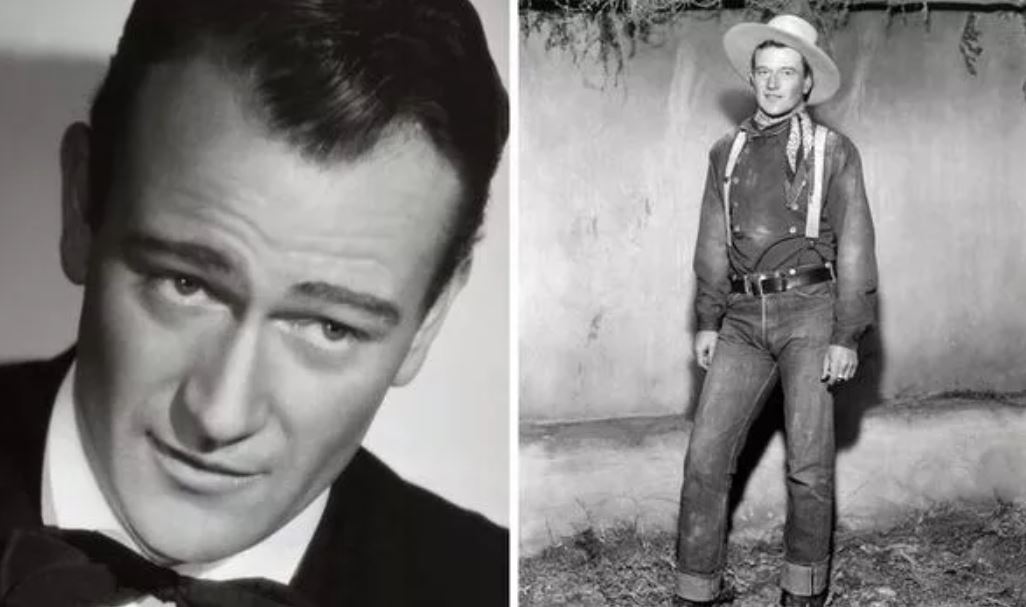This afternoon, John Wayne dons his cowboy hat once again in the 1959 western Rio Bravo airing on BBC Two at 1.15pm. Marked out as one of iconic director Quentin Tarantino’s favourite, and most influential films, Wayne stars as a Texan town’s sheriff who is tasked with keeping a baron in prison so he can face a judge. He is aided by his drunk former deputy, played by crooner Dean Martin, as well as an elderly disabled man, who together aim to uphold law in the town.
Wayne’s career in Hollywood is among the most celebrated and cherished among film fans, particularly those who devour cinema from its so-called ‘Golden Age’. But after a series of difficult moments in his career, Wayne, nicknamed Duke, nearly walked away from it all, upset that he had hurt two of his closest friends and allies.
In former wife Pilar Wayne and co-author Alex Thorleifson’s 1987 book, John Wayne: My Life with the Duke, the Oscar winner’s decision on whether to continue acting was deliberated over.
At one point in his career Wayne was labelled a “boozer, skirt chaser, troublemaker and box office poison”, and his star began to wane. As a result of his reputation at the time, no film studio would hire Wayne, even at the reduced rate he asked for.

But he was given a chance by Mascot Pictures to make a number of serial films. Pilar wrote: “Duke told me if he’d known how to do anything other than make movies, he’d have gotten out of the business then and there.
“He hated feeling like a failure, knowing Columbia Pictures chief Harry Cohn had made a fool of him so easily.
“Duke felt that he’d disappointed the two people he cared for most: Josephine Saenz, the girl he loved, and John Ford, the man he admired above all others.
“And all because of an idle flirtation.”
The row with Cohn was over a young female actress, who the executive demanded “every male on the studio lot [to] keep their distance from”.
Wayne was reportedly unaware of the rule and spoke to the actress, who found the western star “irresistible”.
He was subsequently turned away from the Columbia film studio gates after filming ceased for 1931’s Arizona.

Wayne told Pilar he “thought it was all some kind of mistake”, adding: “All I knew was I had to talk to Cohn and clear things up–or my career was finished.”
Wayne and Cohn endured a “hostile” encounter, the latter telling the star: “Keep your goddamn fly buttoned on my studio.”
But the row was not over, as up until his contract was finally cancelled by Columbia, Cohn forced Wayne to star in a series of minor B-movie roles, including making him be a corpse in a coffin.
Wayne’s career in Tinsel Town nearly did not start at all, as he originally intended to become an American Football player. But after an accident where he attempted to impress some girls before a training session, the star got himself seriously injured.

Eugene Clarke, speaking in Scott Eyman’s 2014 book John Wayne: The Life and Legend, said: “One day we went to Balboa and there were a lot of pretty USC sorority girls down there and we decided to do a little showing off.
“We jumped in the water — it was Duke’s idea — and started to do what the kids nowadays call body surfing.
“The waves were pretty high, real rough, and one of them caught Duke and tossed him ashore with a badly wrenched right shoulder.”
Clarke noted how he and Wayne had to report to football training a few days later, and the star’s shoulder was “still in pretty bad shape”.
Wayne’s position in the side was as a tackle, and the side’s coach Howard Jones “always insisted that when you blocked the opposing lineman, you hit him with your right shoulder… real hard”.
Clarke added: “If Duke tried to do that with his injured shoulder it would have killed him.”
